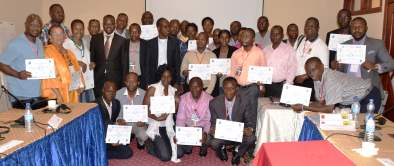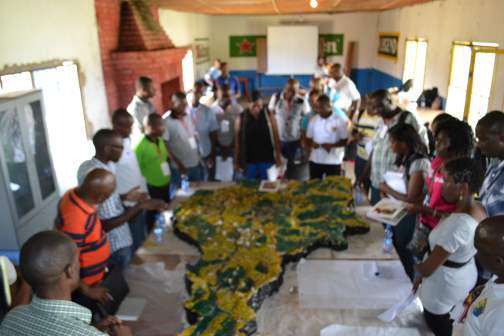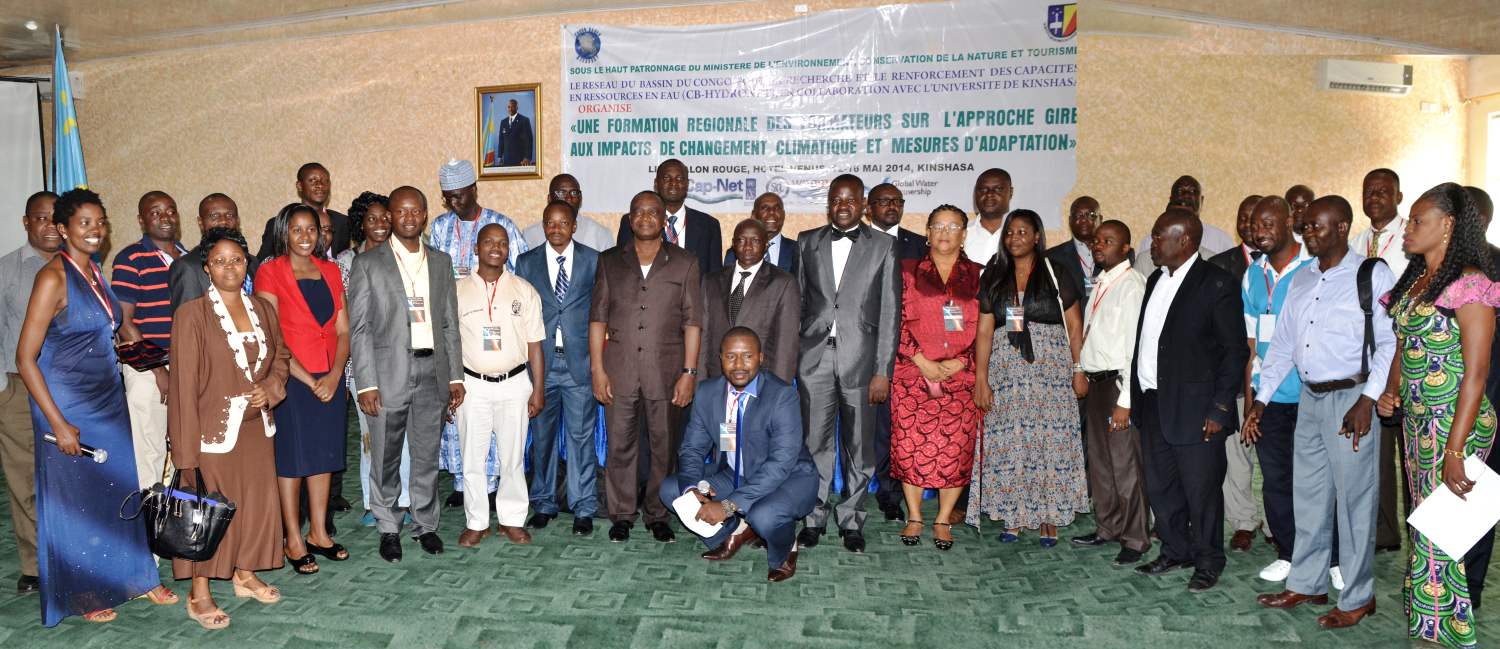Overall, 40 participants from 33 institutions and 13 countries drawn from a broad range of stakeholder groups (research and education, private sector, civil society, policy and decision makers from government, river basin organisations) participated in the training. There was quite a good balance in terms of regional and gender representation.
The methodological approach to the workshop was centred on plenary presentations, group work and field visits. With respect to content, the workshop was a good mix of theory and practice as CB-HYDRONET mobilised a mix of academic and field experts from the Central, Eastern and Southern Africa Regions, as well as from the United Nations system and NGOs.

The key highlight of the workshop was the field visit to the Lukaya River Basin, where a pilot IWRM project supported by the United Nations Environment Program (UNEP) is implementing the innovative idea of the “River contract”. A key concern in 350km2 Lukaya River Basin area is the need to protect the raw water used to supply residents of Kinshasa and its environs with potable water, especially as activities of local enterprises such as farms (poultry, fish and agriculture), and sand and gravel quarries have a major negative impact on water quality. Participants also witnessed the impacts of floods on economic activities.
Moreover, the workshop was honoured to receive as guest the Secretary General of the Congo River Basin Commission (CICOS) who expressed CICOS wish to continue collaborating with CB-HYDRONET in strengthening capacity within the Congo River Basin. Also, the lead facilitator and Regional Program Manager for WACDEP in Central Africa presented the AU/ AMCOW Strategic framework on water security and climate resilience development and the status of its promotion in Africa at Regional, Transboundary and Country levels through the implementation of the WACDEP facilitated by GWP.
The final workshop evaluation by participants indicated that the workshop achieved its objective of improving their understanding of not only the concepts and principles of IWRM and climate change, but also the linkages between them.
 The key recommendations from the workshop included positioning CB-HYDRONET as a capacity development tool for CICOS and other river/lake basin institutions within the Congo River Basin area, organising a separate capacity building workshop on “water resources assessment and monitoring”, promoting research aimed at establishing reference scenario for climate change in different regions and countries in Africa, mainstreaming water security and climate resilience into academic curricular, and improving the GWP Toolbox website so it is more accessible to francophone users.
The key recommendations from the workshop included positioning CB-HYDRONET as a capacity development tool for CICOS and other river/lake basin institutions within the Congo River Basin area, organising a separate capacity building workshop on “water resources assessment and monitoring”, promoting research aimed at establishing reference scenario for climate change in different regions and countries in Africa, mainstreaming water security and climate resilience into academic curricular, and improving the GWP Toolbox website so it is more accessible to francophone users.
The workshop ended with a CB-HYDRONET network meeting were it was agreed that key stakeholders like GWP Regional Water Partnership Secretariats (Central and Southern Africa), CICOS, IRD, ECCAS and SADC should be members of the Steering Committee of CB-HYRONET, and that the CB-HYDRONET growth strategy should be aligned to Africa Union (AU) Agenda for 2063. Click to read workshop report.
